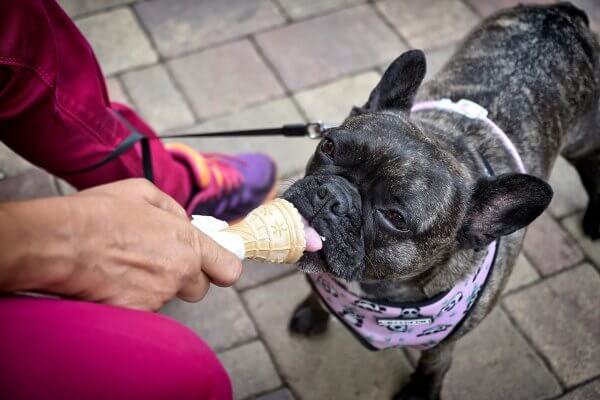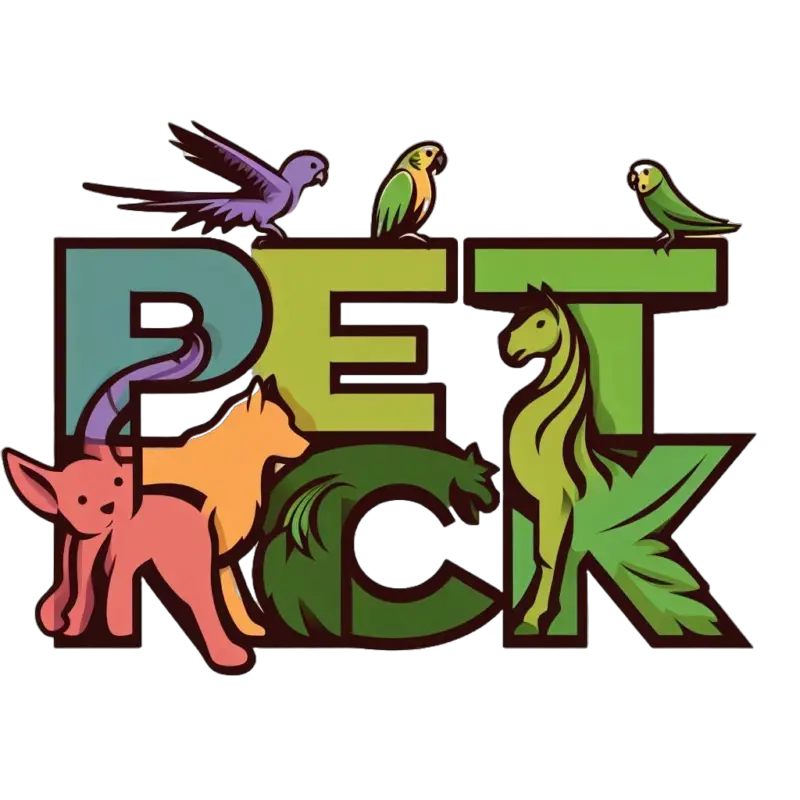Not all of the foods you like to eat are healthy for your dog. Many foods that are consumed by people can make dogs ill, seriously. See the list of the top toxic foods for dogs below, none of which you should ever give to your dog, no matter how politely they ask.
Many human-safe items, and plants can be toxic food for dogs. Sometimes everyday objects pose a serious risk to a dog’s life. You can give your dog some human food, some foods can be extremely harmful to dogs. Several of the most popular foods that can be harmful to animals are highlighted in the list below. Human foods have the potential to be your dog’s best friend or worst foe. Your dog may become seriously ill from eating some of the most popular household foods. Many are poisonous!
List of Toxic Food for Dogs
Dogs are lovable and adorable pet, and all dogs’ owners don’t want to put their buddy into some trouble. That why we bring a list of 18 toxic food for dogs
-
Alcohol
Alcohol can be more deadly to dogs because they are smaller than humans. Dogs are frequently drawn to the sweet flavor of alcoholic beverages, particularly eggnog. Alcoholic drinks and foods can make people throw up, have diarrhea, lose coordination, experience central nervous system depression, have breathing problems, tremors, have abnormal blood acidity, go into a coma, or even pass out. Alcohol consumption, even in small amounts, can cause heart arrhythmias, dangerously low blood pressure, or even worse.
-
Fruit Seeds
Apple seeds and the core are toxic for dogs, but the apple’s fleshy parts are not. Although they probably are safe in moderate amounts, apple seeds contain cyanide, so it’s best to just stay away from the core and seeds entirely. However, these are not the only fruit seeds that your dogs should avoid eating. Also to be avoided are the seeds and pits of apricot, cherry, and plum. These fruit pits also contain cyanide, which can result in death by causing cyanide poisoning, vomiting, seizures, and fast, irregular heartbeat.

-
Avocado
Although avocados may seem healthy to you, they are not at all healthy for dogs. Persin, a chemical found in avocados, has the potential to poison dogs by causing them to vomit and have diarrhea.
Many other livings things such as Birds, rabbits, donkeys, horses, sheep and goats are the main victims of avocados. The heads and necks of horses, donkeys, and ruminants frequently swell and become edematous.
If consumed, avocados may also cause fluid to build up in the chest and lungs. Breathing difficulties and death from oxygen deprivation may result from this.
-
Spicy Food and Salt
The fluid balance of your dog’s cells can be altered by excessive salt consumption. Tremors, seizures, and even comas can result from eating too much salt. Don’t let your dog’s sad eyes endanger their health by giving in to their pleading for a bite of salty food, homemade play dough, or potato chips. You need to be careful before feeding spicy food, it can prove to be a toxic food for dogs.
Keep spicy food away from your dog. Hot, sour, or spicy food can make your dog sick or hurt your wallet by causing diarrhea, stomach ulcers, or vomiting.
-
Chicken and Bones
It is preferable to trash fatty meat cuts, ham, and other fatty foods like chicken or turkey skin rather than giving them to dogs as a reward. These foods have a high fat content, which can lead to acute pancreatitis, a condition with serious consequences and a high mortality rate. Avoid turkey bones as it can be a toxic food for dogs. After consuming turkey bones, dogs may get severe indigestion or vomiting. Splintered bones have the potential to hurt the stomach or intestines or block the bowels. This can occasionally cause a stomach puncture, which can result in a deadly gut infection.

-
Chocolate
Despite how delicious chocolate may be for both humans and dogs, it can be a poisonous and toxic food for dogs. Theobromine, a stimulant found in chocolate (dark chocolate has the highest concentration), is poisonous for dogs and can result in kidney failure.
One of the most frequent holiday dog poisoning causes is chocolate toxicity. “Theobromine” is a deadly substance found in chocolate. Theobromine content increases with chocolate’s level of darkness. “Caffeine” is another ingredient in chocolate, and some sugar-free varieties may also contain xylitol, which is a toxic food for dogs.
Dogs cannot digest chocolate, as well as people can. The worst chocolates are dark or baker’s chocolate, but any kind of chocolate can cause issues.
Additionally, it contains methylxanthines, which can be found in the nuts of an extract used in some sodas as well as cacao seeds, the fruit of the plant used to make coffee. Methylxanthines, when consumed by animals, can result in hyperactivity, abnormal heart rhythm, tremors, seizures, vomiting, diarrhea, panting, excessive thirst, excessive urination, and even death. Baking chocolate contains the most methylxanthines, while white chocolate has the least.
-
Grapes
Grapes can cause renal failure, and it is uncertain what poisonous components they contain. It is best to steer clear of giving grapes to dogs until more is known about the poison.
The specific reason why grapes are toxic for dogs is yet to be find, however, these fruits can potentially result in kidney failure in dogs. Some canines can develop severe problems from a few bites.
-
Coconut and Coconut Oil
Coconut and goods made from coconut are unlikely to seriously harm your dogs when consumed in tiny amounts. Fresh coconuts do include oils in the meat and milk that could upset the stomach or result in diarrhea or loose stools. We advise you to use caution when giving these foods to your dogs as a result. Since coconut water contains a lot of potassium, you shouldn’t give it to your dogs.
-
Mushrooms, Onions, and Garlic
To be safe, it’s best to refrain from giving your dog mushrooms. Numerous toxins found in mushrooms have been linked to red blood cell damage, kidney and liver failure, vomiting, diarrhea, and hallucinations. Although grocery store white, washed mushrooms might be acceptable, it would probably be wiser to select a different treat.
Many dog owners are shocked to learn that allium family herbs, like onions and garlic, are toxic for dogs. Sulfoxides and disulfides, which are found in onions and garlic, can harm red blood cells and result in anemia in dogs. Before giving your dog food from the grocery store, make sure to read the labels because many prepared foods, including baby food, contain onion and garlic powders.
-
Milk & Dairy Products
Milk and other dairy-based items give dogs diarrhea or another digestive discomfort because they lack considerable amounts of lactase, the allium family herbs close in milk.
On a case-by-case basis, milk and other dairy products should be thought about. Some dogs do just fine eating or drinking dairy. However, some dogs may develop diarrhea and gas if they consume cow’s milk because they are lactose intolerant or allergic.
You should avoid giving ice cream and cheese to your beloved dog, because of the lactose, high sugar, and high-fat content of ice cream. Instead of offering your dog ice cream, consider freezing bite-sized portions of wholesome fruits that they can consume. As for cheese, it’s acceptable in moderation as long as you stick to low-fat varieties as a treat rather than high-fat varieties.

-
Xylitol
Many items consumed by people contain the sweetener xylitol, including candy and sugar-free gum. However, it can result in a sharp drop in blood sugar in dogs, which can cause weakness and even seizures. Also possible in some dogs is liver failure.
Candy, gum, toothpaste, baked goods, and some diet foods are all sweetened with xylitol. It may cause your dog’s blood sugar to drop and liver failure. Vomiting, drowsiness, and difficulties with coordination are among the early symptoms. Your dog might eventually experience seizures. In a matter of days, the liver may fail. In fact, situations of dog poisoning involving this artificial sweetener, which is frequently present in baked goods without sugar, are on the rise.
-
Yeast & Raw Dough
For a number of reasons, dogs should not be given raw dough or yeast. The raw dough can grow inside your dog’s stomach, resulting in excruciating pain and even a stomach torsion or rupture that could be fatal. The bread dough needs to rise before baking. And if your dog ate it, that is exactly what would happen in its digestive system. The dough can stretch your dog’s abdomen and cause severe pain as it swells internally. Additionally, alcohol is produced when the yeast ferments the dough to cause it to rise, which can result in alcohol poisoning.
Additionally, raw dough’s yeast and sugar have the potential to ferment, which can result in alcohol toxicity. This needs immediate medical attention because it could quickly become fatal.
-
Raw Eggs
Some owners give their dogs a “raw diet” that consists of raw eggs. However, the largest veterinary medical associations do not believe that is a wise decision. Salmonella or E. coli-related food poisoning is a possibility.
-
Human Medicines
Dogs shouldn’t consume human medication. They might get very sick from it. Keep all medications out of your dog’s reach, just as you would for your children. And unless your veterinarian instructs you to, never give your dog any over-the-counter medications. Pain relievers and cold medications frequently contain ingredients like acetaminophen.
-
Tomatoes and Potatoes
In some forms, tomatoes and potatoes are safe; in others, they are not. A ripe red tomato is usually acceptable. It’s the same with potatoes. They usually pose no health risks in moderation when baked or boiled without any additives. However, solanine, a substance found in raw potatoes, is a toxic food for dogs.
-
Tobacco
For your dog, tobacco is harmful and unhealthy. Vomiting, diarrhea, and other symptoms can occur after exposure to nicotine-containing products. quickly breathing, Agitation, unusual heartbeat, Wobbliness, weakened muscles regardless of blood pressure, Seizures, Tremors
Tobacco use that is more significant or frequent can result in blue gums, coma, and eventually death. Dogs are inquisitive. They might sniff through an ashtray filled with cigarette butts or get into a cigarette that was left on the sidewalk while you were out for a walk. If your dog starts using tobacco, you must act quickly and take him to the vet immediately.
-
Nutmeg & Cinnamon
Any foods containing nutmeg shouldn’t be given to dogs. There’s a chance that this spice will make your dog extremely nauseous. Don’t give in to your dog’s asking for a nutmeg-flavored cookie. Myristicin, a substance found in nutmeg, is to blame. When taken by a small dog or in high doses, it has the most potent effects.
Cinnamon should also be avoided because it can irritate your dog’s mouth and occasionally result in low blood sugar, both of which can have detrimental effects on your dog’s health. cinnamon is not a toxic food for dogs.
-
Macadamia Nuts
Keep your dog away from foods that contain macadamia nuts and macadamia nuts altogether. Six macadamia nuts, whether raw or roasted, can make a dog ill. Look out for signs like shaking of the muscles, nausea, a high temperature, and weakness in the back legs. Consuming chocolate along with nuts will exacerbate symptoms and may even be fatal. Macadamia Nuts can also proved to be a toxic food for dogs, please be careful before feeding it to your dog.


